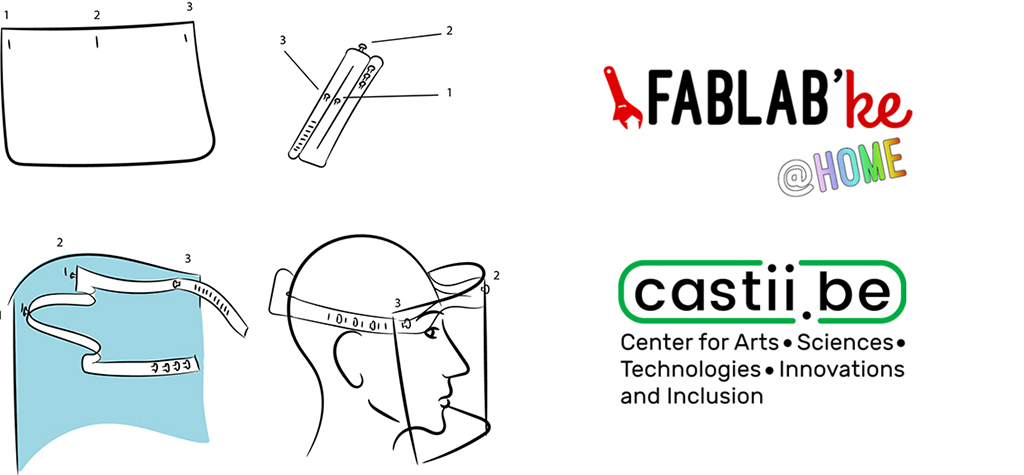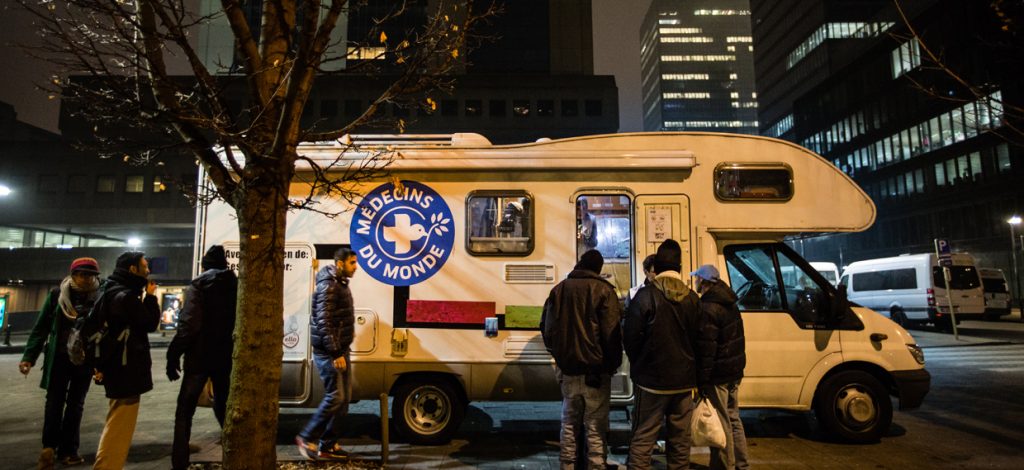Solidarity initiatives in the Brussels-Capital Region during the COVID-19 pandemic
Solidarity and creativity are the keywords in many of the initiatives that are set up in the Brussels-Capital Region in view of the ongoing COVID-19 crisis. Brussels International has made a selection of initiatives, which all originated in projects that received financing from the ERDF, the European Regional Development Fund.
Technology and innovation in healthcare
Within the lifetech.brussels health care cluster, the ALIFE project has now reinforced the region’s Health Ecosystem by developing an inclusive production system that connects frontline workers, hospitals, entrepreneurs, care providers and patients. With ERDF financing, the project launched a health care start-up accelerator and business development programme in 2016, for medical devices among others. Seven start-ups have already received ERDF ALIFE financing, namely Advelox, Healthentia, Helpilepsy, Seek and Care, Spentys, Lilo Health and moveUP.
The members of lifetech.brussels are currently developing and sharing innovative solutions to combat COVID-19, such as platforms for communication and medical follow-up, a digital assistant for patients with specific pathologies…


An inclusive production line for face masks
The Brussels-based fashion and design platform MAD, Home of Creators (ERDF project, 2007-2013 programme), the TRAVIE sheltered workshop (which received financing from the ERDF 2014-2020 project through the Dev’Up team project) and the EcoRes sustainable innovation lab joined forces, forming a consortium to help mitigate the lack of face masks in the Brussels-Capital Region (BCR).
In less than ten days, this consortium, which is founded on the principle of solidarity, was able to set up an inclusive production line with support from the BCR. TRAVIE produces kits for DIY face masks, which are then distributed to a network of volunteer sewists. The raw materials are delivered directly to the volunteers. The platform also picks up the finished masks, in line with lockdown rules. The MAD, Home of Creators facilitated the organisation of this network, providing support for the development of the online tutorial for making face masks.

Protective plexiglass screens
L’Ouvroir produces protective plexiglass screens that can be installed on counters, desks and tables in shops and government offices to curb the risk of infection.
Along with 10 other sheltered workshops, L’Ouvroir received financing from the ERDF 2014-2020 programme through the Dev’Up team project (project that ended on May 2019 which consisted of the development and diversification of 11 Brussels-based sheltered workshops, to safeguard the employment of their workforce of 1,450 disabled employees).

A virtual fablab for creative activities at home
The Fablab’ke, which is based in the House of Cultures and Social Cohesion in Sint-Jans Molenbeek, is a digital makers lab for children and young people. In the margin of the COVID-19 pandemic, the project, which is part of the ERDF programme through the CASTII, has gone virtual, reinventing itself as Fablab’ke@Home. The lab shares maker challenges, tutorials and live sessions on YouTube. The aim is to offer children and young people creative and interactive activities that they can do at home during the coronavirus lockdown.
The Fablab’ke has also partnered with other Brussels communities to produce plexiglass visors.
ERDF CASTII project was launched by the not-for-profit association iMAL , the not-for-profit association Molenbeek Vivre Ensemble (MOVE) and the Municipality of Sint-Jans Molenbeek (House of Cultures and Social Cohesion). The ERDF provides support for the renovation and expansion of the building where iMAL is based as well as the set-up of two fablabs, that are open to everybody. The fablabs are a driver for economic development and social integration and cohesion.
Doctors of the World Belgium, helping groups of vulnerable people
The not-for-profit organisation Doctors of the World Belgium relies on ERDF support to meet the healthcare needs of some of the most vulnerable people in our society such as the homeless, families living on our cities’ streets, people who are excluded from health services… In Brussels, Doctors of the World Belgium continues to provide health services with its Medibus during the COVID-19 pandemic. The bus, which has a doctor on board, drives to places where other, regular services have been stopped. The mobile teams of Doctors of the World have also stepped up their tours of stations, parks and streets to find vulnerable people and raise their awareness about the novel coronavirus.




